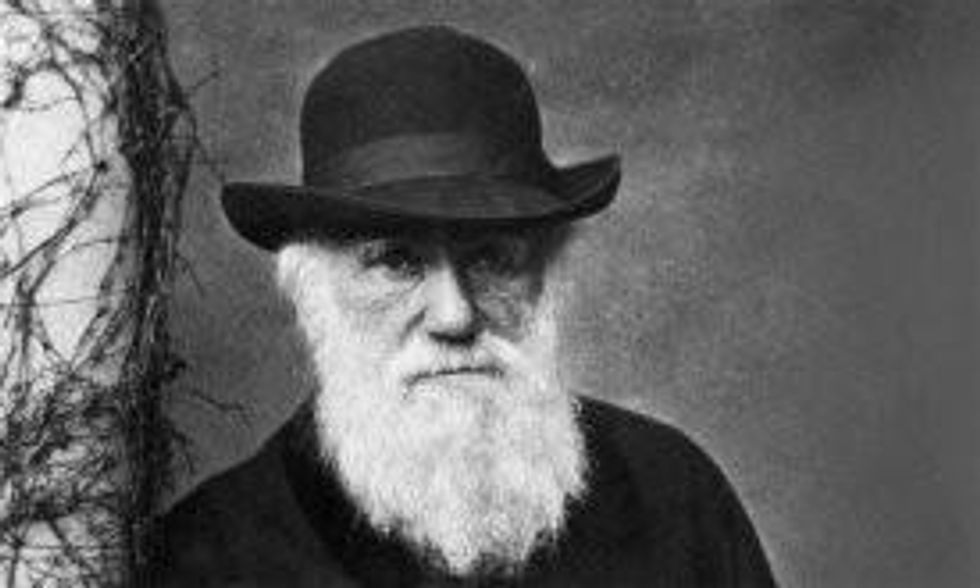You might have thought it was all over after the 2005 decision by the US district court of Middle Pennsylvania (pdf), which ruled in the case of the Dover Area schools that teaching intelligent design is unconstitutional. You might have guessed that they wouldn't come back after the 1987 US supreme court decision in Edwards v Aguillard, which deemed the teaching of creationism in Louisiana schools unconstitutional. Or maybe you figured that the opponents of evolution had their Waterloo in the 1925 Scopes "monkey" trial in Tennessee.
They are back. There are six bills aimed at undermining the teaching of evolution before state legislatures this year: two each in New Hampshire and Missouri, one each in Indiana and Oklahoma. And it's only February.
For the most part, the authors of these bills are singing a song we've heard before. Jerry Bergevin, the Republican sponsor of one of the New Hampshire bills, says of evolution that "It's a worldview and it's godless." He blames the teaching of evolution for Nazism and Columbine. Josh Brecheen, the sponsor of the Oklahoma bill, wants to stop the teaching of "the religion of evolution." These legislators, and their colleagues in Missouri and Indiana, trot out the hoary line that evolution is "just a theory" and that real science means saying that every point of view is just as good as any other.
Most of these bills aren't likely to get anywhere. The Indiana bill, which specifically proposes the teaching of "creation science", so obviously falls foul of the supreme court's 1987 ruling that it's hard to imagine it getting out of committee. The same could be said for the Missouri bill, which calls for the "equal treatment" of "biological evolution and biological intelligent design".
Still, it's worth asking: why is this happening now? Well, in part, it's just that anti-evolution bills are an indicator of the theological temperature in state houses, and there is no question that the temperature has been rising. New Hampshire, Indiana, Oklahoma, and Missouri turned deeper shades of red in the 2010 elections, as did the US Congress.
But there are a couple of new twists that make this same-old story more interesting than usual. One has to do with the temperature in a less metaphorical sense. The Oklahoma bill isn't properly speaking just an "anti-evolution" bill; it is just as opposed to the "theory" of "global warming". A bill pending in Tennessee likewise targets "global warming" alongside "biological evolution". These and other bills aim their rhetoric at "scientific controversies" in plural, and one of the New Hampshire bills does not even bother to specify which controversies it has in mind.
The convergence here is, to some degree, cultural. It just so happens that the people who don't like evolution are often the same ones who don't want to hear about climate change. It is also the case that the rhetoric of the two struggles is remarkably similar - everything is a "theory", and we should "teach the controversy". But we also cannot overlook the fact is that there is a lot more money at stake in the climate science debate than in the evolution wars. Match those resources with the passions aroused by evolution, and we may have a new force to be reckoned with in the classroom.
The other significant twist has to do with the fact that the new anti-evolution - make that anti-science - bills are emerging in the context of the most vigorous assault on public education in recent history. In Oklahoma, for example, while Senator Brecheen fights the forces of evolution and materialism, the funding for schools is being cut, educational attainments are falling, and conservative leaders are agitating for school voucher systems, which, in the name of "choice", would divert money from public schools to private schools - many of them religious. The sponsor of Indiana's anti-science bill, Dennis Kruse, who happens to be chairman of the Senate education committee, is also fighting the two battles at once.
The Heartland Institute - which has received funding in the past from oil companies and is a leading source of climate science skepticism - also lobbies strongly for school vouchers and other forms of "school transformation" that are broadly aimed at undermining the current public school system. The Discovery Institute - a leading voice for intelligent design - has indicated its support of exactly the same "school reform" initiatives.
If you can't shut down the science, the new science-deniers appear to be saying, you should shut down the schools. It would be a shame if they succeeded in replacing the teaching of science with indoctrination. It would be worse if they were to close the public school house doors altogether.




